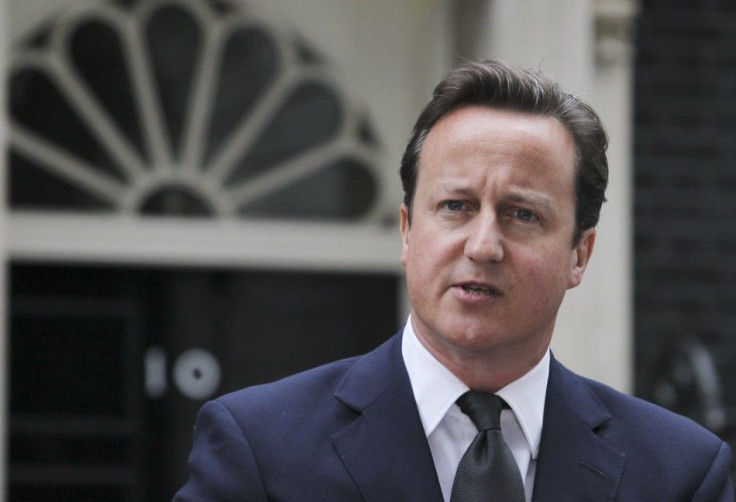UK Riots 2011: PM Cameron Makes His Stand

In response to five days of riots in London, British Prime Minister David Cameron has authorized police to use whatever methods necessary to curb the spreading anarchy.
Saying on Wednesday that “nothing is off the table,” Cameron noted that police are already using rubber bullets and batons, and that water cannons were on standby.
“This continued violence is simply not acceptable, and it will be stopped,” Cameron said. “We will not put up with this in our country. We will not allow a culture of fear to exist on our streets.”
A total of 16,000 police officers are in the capital, a force massive enough to keep London relatively quiet Tuesday night. Looting restarted in Ealing, but neighborhoods like Hackney and Eltham, which saw massive disorder on Monday, remained calm. Meanwhile, London jails are filled to capacity.
English police have never had to use water cannons before, but the crowd-control method has been employed historically in many European countries, as well as the U.S.
"I am not saying that is necessarily what we want, but we have got to allow the police to use their powers and, once they have arrested individuals, for the judiciary to be able to punish them," Patrick Mercer, a Conservative MP and former army officer, told BBC Television Tuesday morning.
"They should have the tools available, and they should use them if the commander on the ground thinks it is necessary. I don't think we have necessarily to mollycoddle Englishmen because we don't mollycoddle Irishmen," he added, referring to the use of water cannons on rioters in Northern Ireland last month.
Home Secretary Theresa May, who has been vocal during the whole ordeal, disagrees with Mercer and she outright rejected the idea on Tuesday.
"The way we police in Britain is not through use of water cannon," she said. "The way we police in Britain is through consent of communities."
Yet, many media commentators are demanding that the UK absolve its "soft policing" practices as quickly as possible. Some argue that without proper tools at their disposal, police simply stand around watching chaos unfurl.
"[UK policing] is the triumph of a managerial, bureaucratic process-driven style of policing hatched in the rarefied confines of academia rather than on the harsh reality of the streets," wrote The Herald Sun's Miranda Devine on Wednesday.
"Every now and then the two meet and you get bloody anarchy. No prizes for guessing who comes off second best."
Demonstrators have thrown firebombs at police officers and torched property, cars and London city buses. In Tottenham, where the violence started Saturday night, rioters smashed store windows and burned buildings to the ground.
Rioting and looting has been continuing in the British capital since the weekend, when angry citizens of Tottenham marched to police headquarters to protest the fatal shooting of 29-year-old Mark Duggan. The anarchy then spread to Hackney, Peckham and Lewisham on Monday afternoon and by night-fall reached the neighborhoods of Ealing, Camden and Croydon.
Nearly 800 people have been arrested in London at last report.
In what police and the British media have called a "copycat riot," gangs of masked youths began looting retail shops in the center of Birmingham Monday night, and the new Bull Ring shopping complex was attacked. The violence continued into Tuesday, and 150 people have been arrested in the Midlands city, while 13 were hospitalized.
In Liverpool, police reported a "number of isolated outbreaks of disorder," including the familiar trademarks of the London rioters, namely burning cars and broken windows.
Liverpool is traditionally a working-class city, with a similar reputation as the tough, blue-collar Tottenham, where the riots began Saturday evening. Witnesses are detailing incidents of violence and destruction mirroring what has been happening London for the past few days.
By Tuesday evening, rioting and looting had hit the cities of Nottingham, Bristol, Gloucestershire, West Bromwich, Wolverhampton, Salford and Manchester.
© Copyright IBTimes 2024. All rights reserved.





















